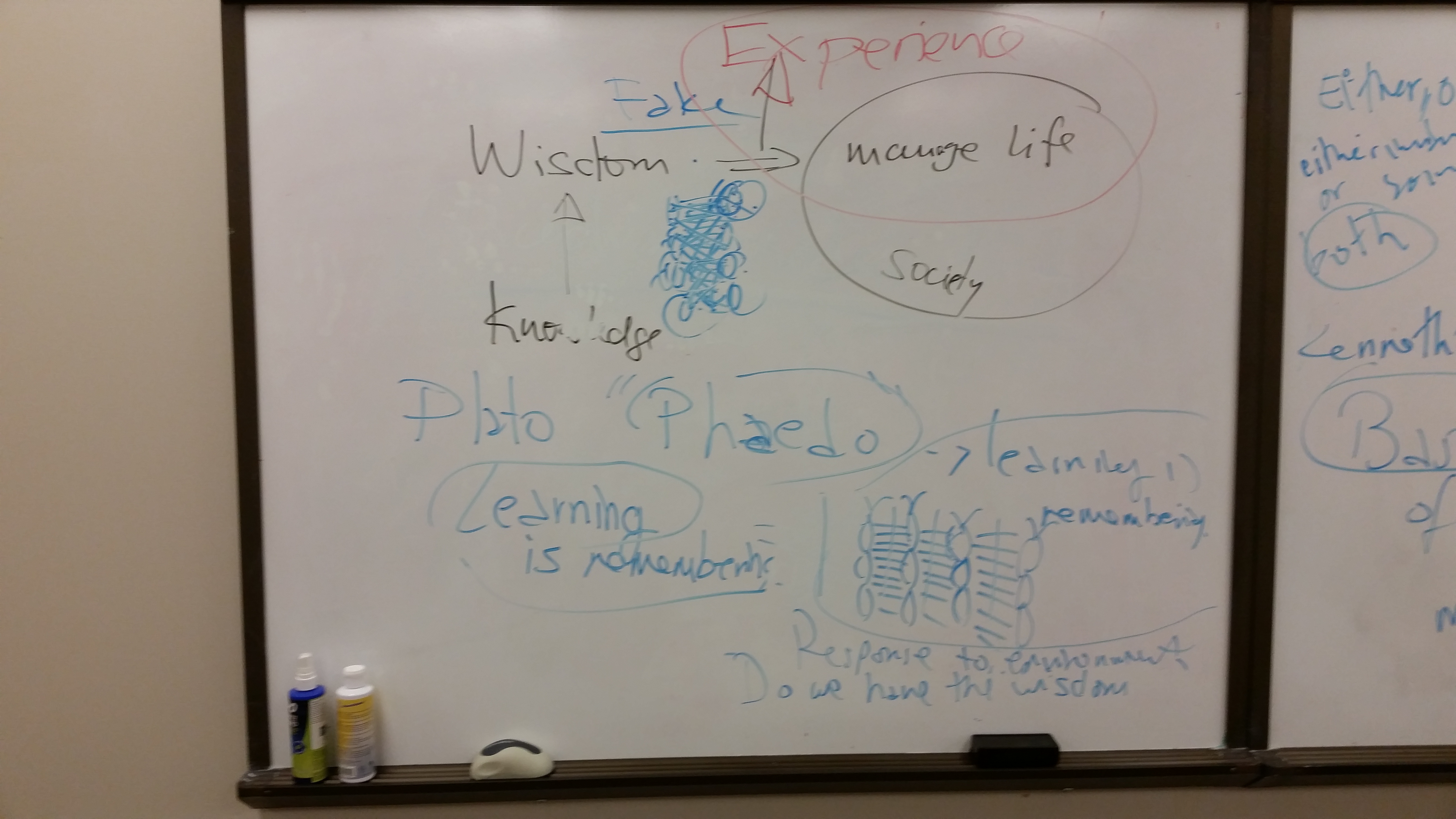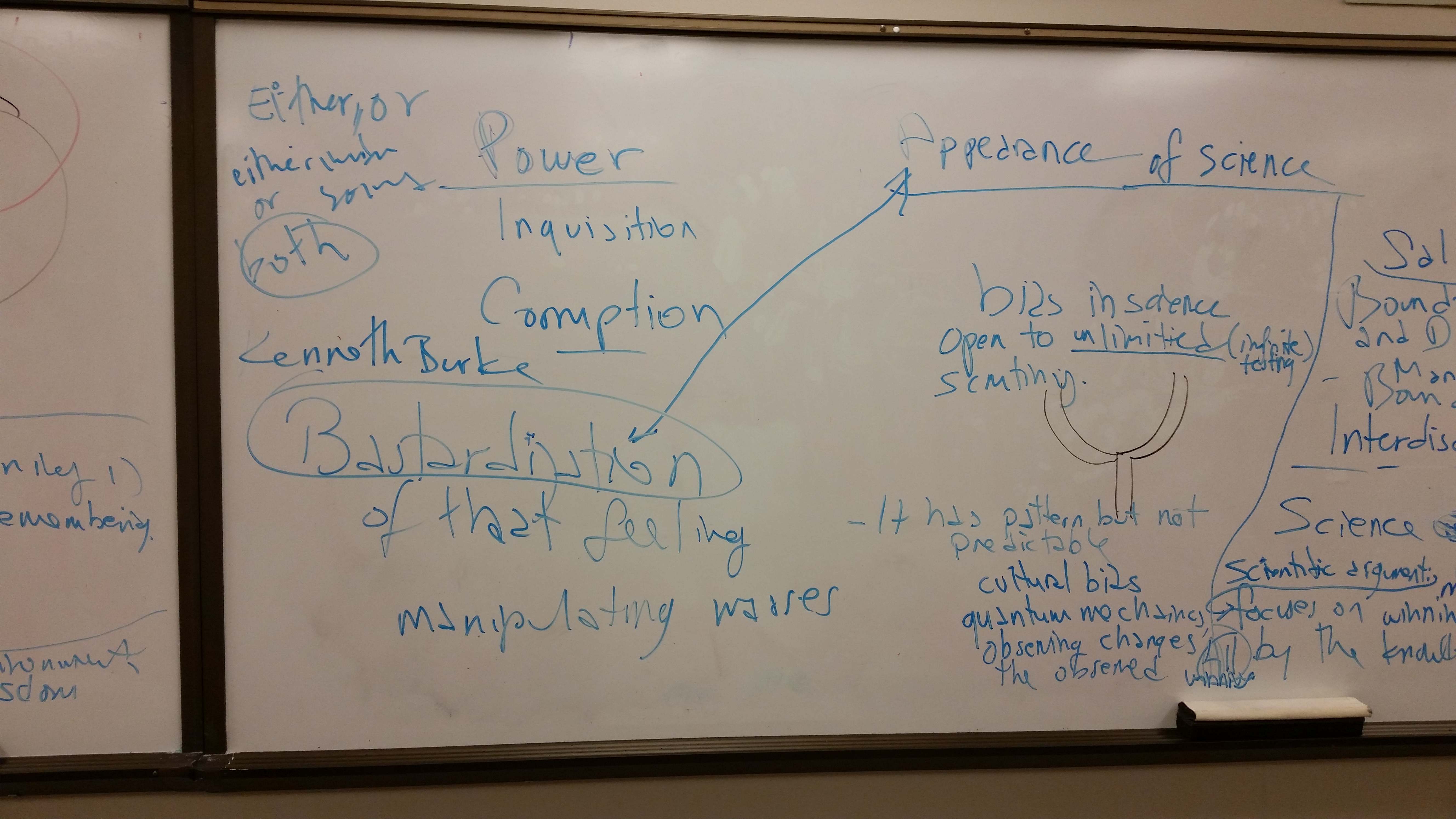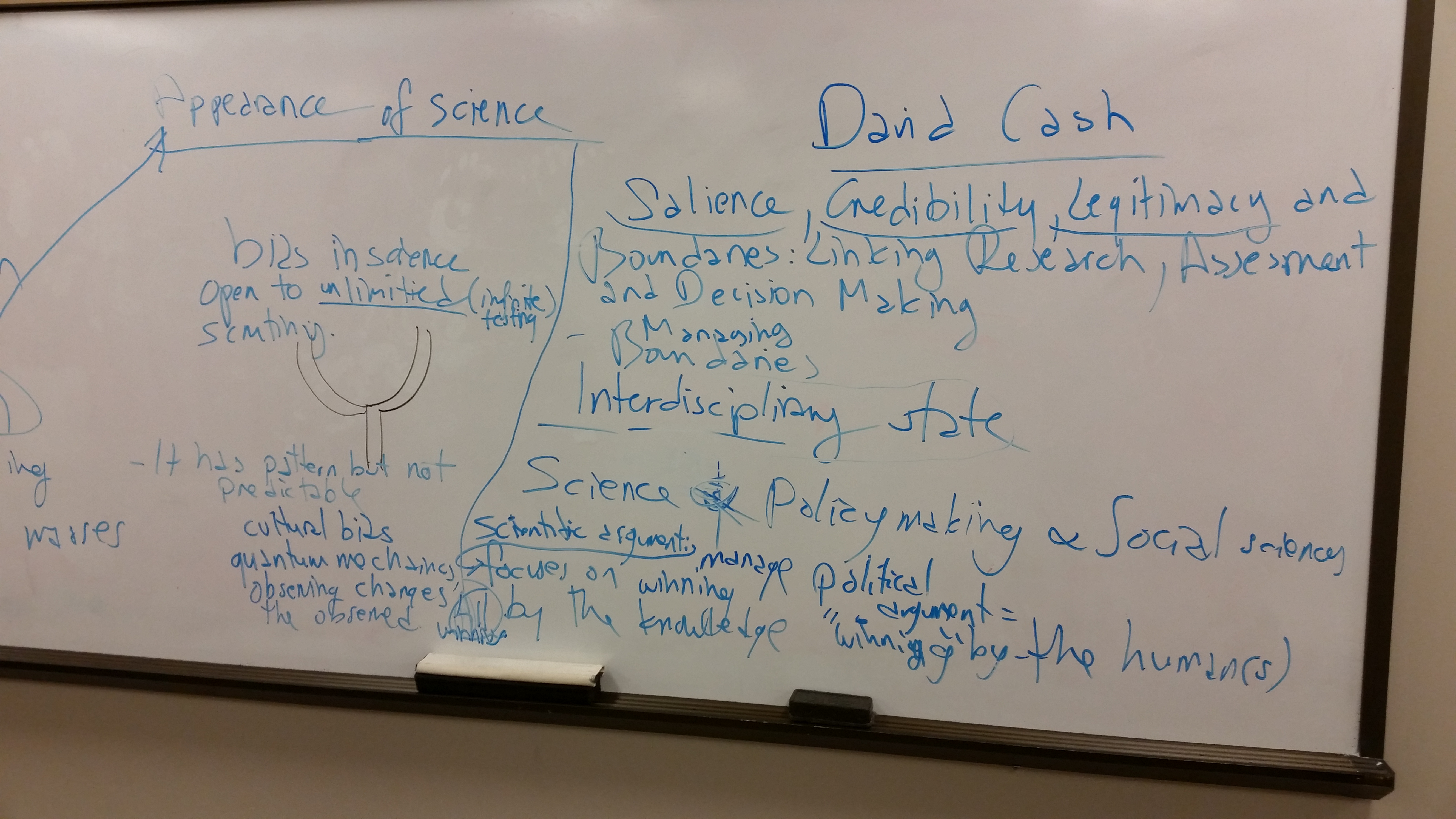 |
|
 |
MARI News Press Releases Blogs&Lists About Us Newsletter Disclaimers |
Science in Literature: Reflections on the Social Constructs of Science in Society
Course: OEAS/ENMA 795/895 Advanced/Special Topics (three credits);
Course title: Science in literature: reflections on the social constructs of science in society;
Instructors: Dr. Hans-Peter Plag, Dr. Michelle Covi, Michelle Heart;
Term: Fall 2014.
Notes Week 8: Science and Policy and Decision Making
The session started with a brief summary of the reading material and a round in which the students commented on their reading choices. The main part of the deliberations centered on the openness of societal stakeholders, including scientists, to knowledge and their ability to develop wisdom based on knowledge. Wisdom is what human beings need to manage their lives and to achieve a sustainable lifelihood. A key conlusion was that wisdom is the result of life experience and therefore dominated by those experiences that worked for humans and enabled them to manage their life. We considered as examples politicians in different systems. In systems, where the voters value the knowledge and expertice of a candidate, where a person gets elected based on the personality, knowledge, and charisma, the elected persons will value these aspects highly. In such a system, an elected person is more likely to respects knowledge and expertise. In a systems, where success depends mainly on the money available for the promotion of a candidate and the support this candidate gets from sponsors, an elected person is likely to value money more than knowledge and expertise.
Wisdom is like a tree, which is shaped by the environmental conditions it was exposed to. In the same way, the wisdom of a human being is impacted by the experiences this person was exposed to. The overall wisdom, that crystalizes in paradigms that are accepted by a large part of a community limits the way in which this community is able to use knowledge that may be available.
Consequently, science can create knowledge, but the ability to turn this into wisdom that enables the individuals and community to find solutions for challenges is limited through past experiences. The lifeline of individuals and communities are the box in which knowledge is used, and knowledge that would lead to paradigm shifts in terms of wisdom only acn be accepted if new experience changes the boundaries of the box.
Discussion topic for week 9: Continue the discussion of the main elements in community decision making in response to an emerging extreme risk. Take into account the role of wisdom of individuals and the community at large.
To see the picture in higher resolution, just click on the picture.
 |
 |
 |